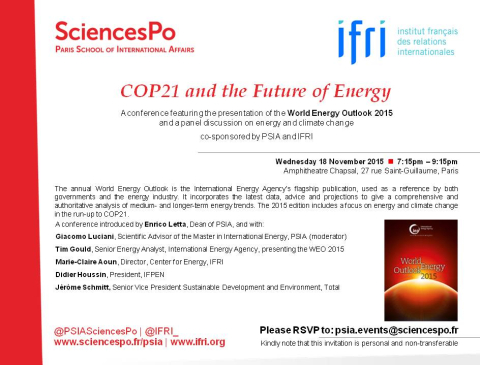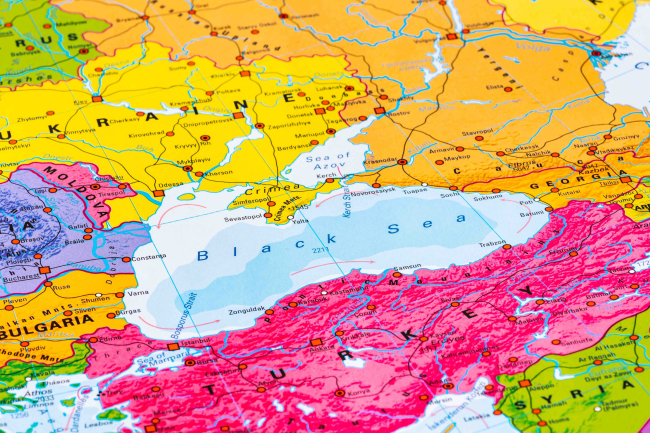
Practical information
Due to the events, we inform you that the conference on COP21 and the Future of Energy, scheduled on November 18 at Sciences Po Paris is cancelled. Thank you for your comprehension
A conference featuring the World Energy Outlook 2015 and a panel discussion on Energy and Climate Change.
The annual World Energy Outlook is the International Energy Agency's flagship publication, used as a reference by both governments and the energy industry. It incorporates the latest date, advice and projections to give a comprehensive and authoritative analysis of medium- and longer-term energy trends. The 2015 edition includes a focus on energy and climate change in the run-up to COP21.
Conference introduced by Enrico Letta, Dean of PSIA with
Giacomo Luciani, Scientific Advisor of the Master in international Energy, PSIA (moderator)
Tim Gould, Senior Energy Analyst, International Energy Agency, presenting the WEO 2015
Marie-Claire Aoun, Director, Center for Enegy, Ifri
Didier Houssin, President, IFPEN
Jérôme Schmitt, Senior Vice President, Sustainable Development and Environment, Total
Other events

Affirming European Security in Ukraine and the Black Sea Region
European security has been challenged in 2022 with the full-fledged invasion of Ukraine by the Russian Federation.

Post-war Europe: How to Redefine a Security Architecture Within a New Transatlantic Framework?
A new European security architecture has to be built. The question is: will this happen with or without Europe? The US President, Donald Trump, who returned to the White House a little more than two months ago, and the President of the Russian Federation, Vladimir Putin, have initiated talks to put an end to the war in Ukraine, with the possibility of Ukraine ceding territory to Russia being raised.

Doing Politics in African Cities: Actors, Causes and Forms of Urban Social Mobilization
From Maputo to Nairobi and from Lagos to Dakar: recently, African cities have been the theatre of mobilizations by groups of young protesters.







